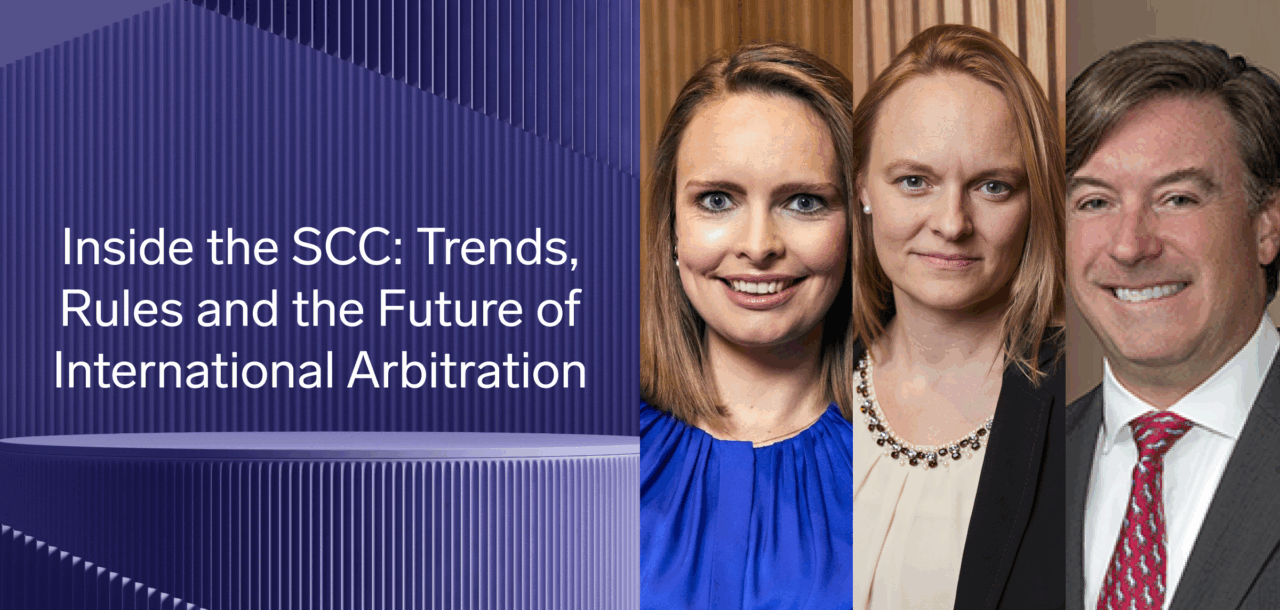SCC guests Bracewell’s new podcast: Trends, rules and the future of international arbitration
In the very first episode of Bracewell’s The Arbitration Acumen Podcast, SCC Secretary General Caroline Falconer and Deputy Secretary General Madeleine Thörn joined host J.P. Duffy for a wide-ranging conversation on SCC’s evolving role in international dispute resolution.
Published

The episode dives into the SCC’s longstanding commitment to neutrality, innovation, and efficiency in arbitration—core values that continue to shape our work in an increasingly complex global landscape.
Caroline Falconer reflected on the SCC’s unique position as a trusted forum for international arbitration, tracing its history from a Swedish chamber service to a globally recognised institution. From early agreements with the United States, Russia, and China, to today’s multi-billion euro disputes, SCC has consistently offered a neutral, efficient platform for resolving cross-border conflicts.
Madeleine Thörn spoke to the SCC’s caseload: 204 cases in 2024, over half of which were international, involving parties from 40 countries and a combined disputed amount of €13.5 billion. These numbers reflect the SCC’s global relevance and the growing demand for streamlined dispute resolution.
Arbitration rules
The discussion also touched on the latest updates to the SCC Arbitration Rules, introduced in 2023, to support more efficient proceedings, including enhancements to virtual hearing provisions and broader use of expedited procedures.
SCC Express
A key highlight of the episode was the SCC Express Rules: a fast, flexible tool for resolving disputes with decisions rendered in as little as three weeks. As Madeleine explained, the rules are part of SCC’s broader push for smarter, time-sensitive solutions that reflect how modern business operates.
SCC’s long-term ambitions
Looking ahead, the conversation closed on a forward-focused note, with Caroline outlining the SCC’s long-term ambitions: to remain a trusted, efficient institution for international arbitration, to continue leveraging digital tools and AI where appropriate, and to support international trade and peace through fair, neutral dispute resolution.